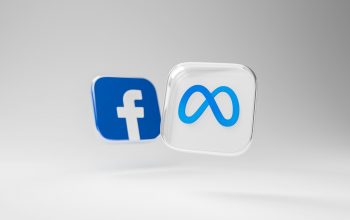Industry Under Pressure Despite Player Benefits
While Xbox Game Pass continues to be a major win for gamers—offering hundreds of games, including day-one releases, for a relatively low monthly fee—the subscription model is sparking serious concerns within the game development community. Recent layoffs and studio closures at Microsoft have reignited debate around the long-term viability and impact of the service.
Microsoft Restructuring Sparks Debate
The controversy intensified after Microsoft laid off thousands of employees and shuttered studios such as The Initiative, which had been working on Perfect Dark. Some insiders, including journalist Jez Corden, claim the root of the issue lies in unrealistic targets imposed by Microsoft’s leadership, tied closely to the Game Pass strategy.
Industry Veterans Speak Out
One of the most outspoken critics is Raphael Colantonio, founder of Arkane Studios and now head of WolfEye Studios. On social media platform X, he called Game Pass “the elephant in the room” amid the industry layoffs, arguing that it’s an unsustainable business model that has been slowly damaging the gaming ecosystem for over a decade.
“I believe Game Pass is an unsustainable model that’s been hurting the industry for ten years, subsidized by Microsoft’s seemingly infinite money. But eventually, reality catches up,” Colantonio wrote. “Game Pass can’t coexist with other business models. It will either wipe them out—or fail entirely.”
Mixed Views on Value for Smaller Studios
Michael Douse, publishing director at Larian Studios (known for Baldur’s Gate 3 and Divinity: Original Sin), echoed similar concerns. While he acknowledged that Game Pass may help smaller teams launch riskier or new IPs, he questioned the platform’s financial logic. “The economics never really made sense,” he said. “Yes, it helps reduce risk for smaller teams, but I personally prefer Sony’s lifecycle management strategy with PlayStation Plus.”
A Threat to the Broader Ecosystem?
Colantonio didn’t hold back, claiming Game Pass is “a long-term play that acts like a tsunami against the industry’s entire ecosystem.” Douse added to the skepticism, stating that many developers are wondering what happens when Microsoft’s financial support runs out. “The question I hear most often is: ‘What happens when the money stops?’ That’s why so many people I know won’t go near this model. The ‘infinite money’ myth never made sense.”
Both developers also criticized earlier messaging that Game Pass wouldn’t affect game sales. “I’m tired of the lies we were fed at the beginning—like ‘don’t worry, it won’t impact sales’—only for them to admit later on that yes, it does. Really? What a shock,” Douse remarked.
Subscription Model Still in Customer Acquisition Phase
Colantonio pointed out that even after eight years, Game Pass remains in the customer acquisition phase and has yet to prove its sustainability. “They’re still hoping that one day subscription revenues will surpass their investment—which totals around $100 billion in acquisitions, licensing, and development. Do the math: they have 35 million subscribers, some of whom only paid one dollar.”
The Future: A Player Backlash?
Right now, Game Pass is popular with gamers. But Colantonio warns that this could change. “When players start realizing the long-term impact this model has on the quality and diversity of games, they’ll end up hating it too.”
As Microsoft doubles down on Game Pass, criticism from within the industry is becoming more vocal. While the service may be delivering short-term wins for gamers, many developers are questioning whether the long game will ultimately undermine the very industry it aims to revolutionize.



